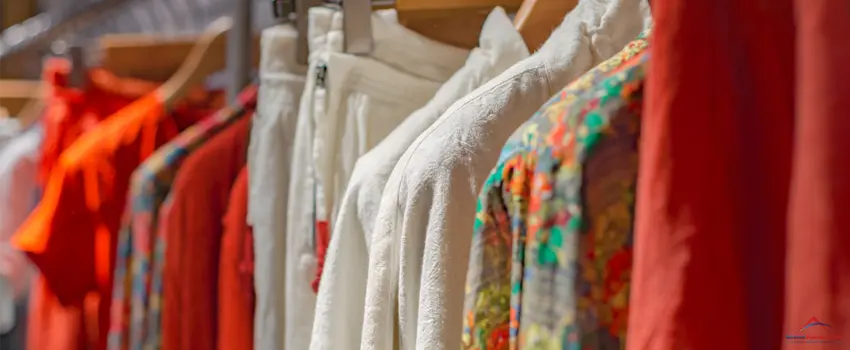It’s undeniable that fashion is a creative way many people express their individuality. Many people enjoy shopping and trying new clothes that suit their personality. However, behind the glitz and the glamor, the fashion industry is not all that fabulous.
Clothing brands, particularly those in the fast fashion industry, contribute astonishing waste and pollution to the environment. The United States alone throws away up to 11.3 million tons of textile waste each year, which means there are 2,150 clothing pieces discarded each second. This alarming number continues to grow everyday unless people and companies shift to ethical and sustainable fashion production, consumption, and practices.
Fast Fashion: A Brief History
The New York Times coined “fast fashion” when Zara, a Spanish clothing retail company, opened its first store in Manhattan. The newspaper used the term to describe the outlet’s fast design and production turnaround. Since then, the term has become synonymous with other fashion brands that follow the same business model that focuses on quantity over quality in terms of quick design, production, and distribution.
Usually, fast fashion brands are easy to spot. These brands quickly produce thousands of designs and on-trend clothes in short periods, sometimes made in limited quantities. Fast fashion brands are notorious for using substandard materials like polyester that wear out quickly. Some of the notable brands and major players in the fast fashion industry include H&M, Shein, UNIQLO, Forever 21, Fashion Nova, Zara, and Top Shop.
The Negative Environment and Social Impact of Fast Fashion
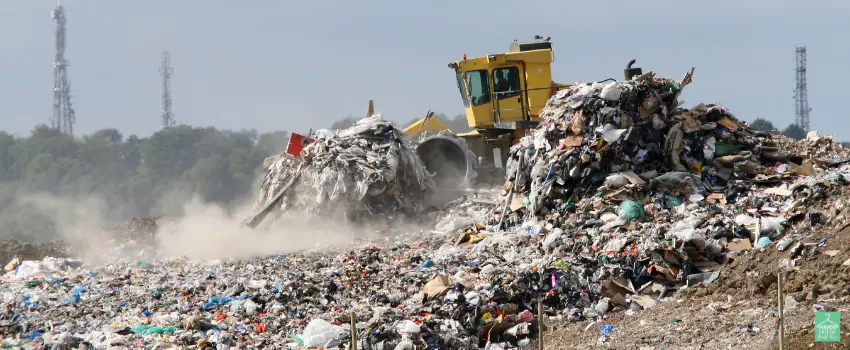
The fast fashion business model has become increasingly scrutinized for its negative environmental impact in recent years. This is due to fast fashion’s reliance on unethical mass production and consumption, that damages the Earth’s natural resources. Here are some examples:
1. Greenhouse Gas Emissions
The fast fashion industry is responsible for tons of damaging environmental pollution. Clothes production alone produces 10% of humanity’s carbon emissions. For example, Levi Strauss & Co’s jean production shares the same carbon emissions as driving a car for 80 miles. In addition, the production of polyester, a common material used in fast fashion clothes, contributes to around 706 million greenhouse gasses. If no action is taken, this amount is expected to double by the decade’s end.
2. Excess Waste in Landfills
The fast fashion industry’s focus on mass production produces excess textile waste in landfills. A report from Earth.Org states that 92 million out of 100 billion garments made yearly end up in landfills. To put things into perspective, this means a single person per disposes an equivalent of 81.5 pounds of textile per year.
3. Excess Water Waste and Pollution
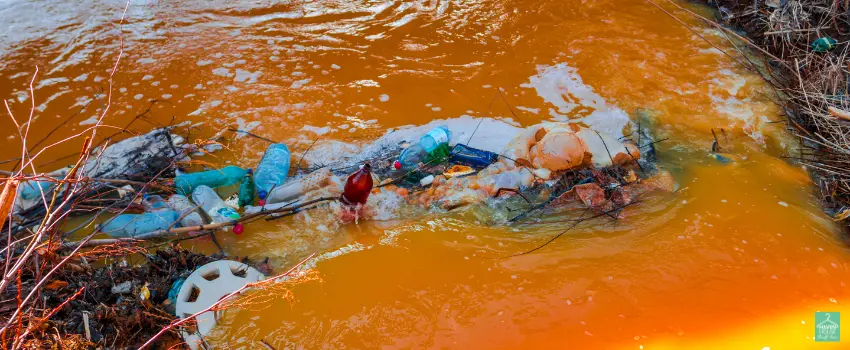
Another example of fast fashion’s environmental impact is that it is one of the most resource-intensive industries in the world. The fashion industry is responsible for 20% of global water waste. They use 93 billion cubic meters of water annually, enough to supply 5 million people. For instance, producing cotton garments takes a hundred gallons of water. This means making a single pair of jeans uses 2,000 gallons of freshwater.
Garment factories and textile manufacturers also contribute to an alarming amount of water pollution that affects marine life. This is because of the “wet-processing” stage in clothing production that uses dye and excess water to color fabrics. The dyes used in these textile processing have a huge amount of harmful synthetic chemicals, which are often dumped back into rivers and waterways.
4. Unfair Work Conditions
Fast fashion brands harm the environment and exploit workers from low- and middle-income countries like the Philippines, China, India, Brazil, and Vietnam. Many garment factories operate on low-cost to maximize profit, which means that workers are given poor working conditions and unfair salaries for intensive labor.
A 2018 United States Department of Labor report also reported that most factory workers in fast fashion factories mainly consist of women ages 18 to 24, with some cases involved in child and forced labor. These workers have daily exposure to a hazardous working environment that could lead to health complications like cancer, lung diseases, and reproductive issues.
Sustainable Ways To Fight Fast Fashion
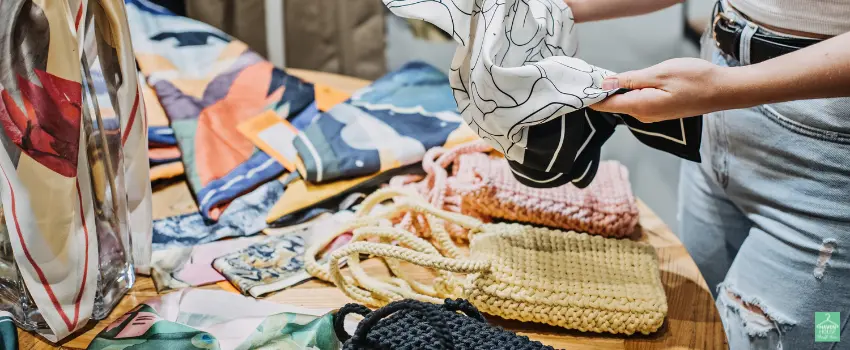
Changes in consumption behavior also play a part in solving fast fashion problems. You can opt for various ethical fashion practices to lessen fast fashion’s environmental impact. Here are a few ways to shift to sustainable fashion habits:
1. Be a mindful shopper.
Society’s obsession with consumerism is one of the reasons why fast fashion is bad for the environment. Fast fashion thrives off people’s constant impulsive buying. You can unlearn this behavior by developing a mindful shopping habit and prioritizing sustainable and ethical fashion choices.
You can start by buying less and only what you need. When choosing pieces, opt for high-quality clothes you can wear many times. Many also practice building a capsule wardrobe consisting of pieces they can mix and match.
2. Research sustainable brands.
Many brands are now getting aware of their environmental impact and are making changes to their clothing materials and production processes. You can research their plans to reduce waste as well as proven track of their progress. This is because many fast fashion brands practice greenwashing, a tactic that tricks customers into viewing their company as ethical and sustainable.
There are also lesser-known and local clothing companies that offer high-quality pieces made from eco-friendly and recycled materials.
3. Take care of your clothes.
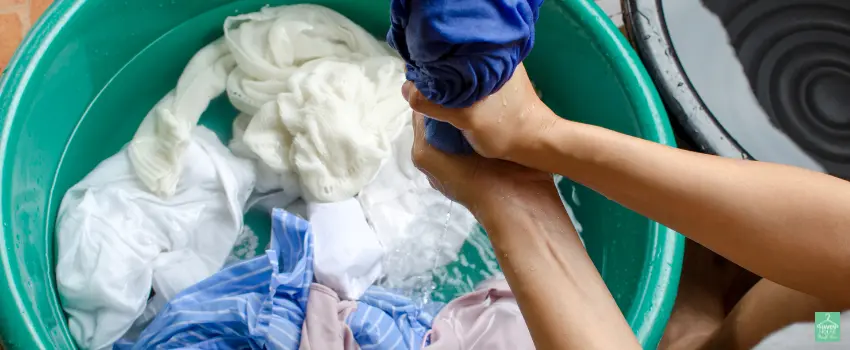
Taking good care of your clothes and knowing the proper maintenance and washing method will keep them in good condition. Always consider the materials and fabrics of your clothes to avoid wearing them out.
In addition, there are sustainable ways to do your laundry. For example, washing in cold water helps reduce your carbon footprint by 10%, and air-drying your clothes reduces your climate impact by 67%.
4. Shop and donate in thrift stores.
The best way to fight fast fashion is to avoid shopping in them. Instead, visit local thrift stores and boutiques. Many thrift stores offer high-quality and good-as-new pieces at affordable prices, so you’re simultaneously saving money and the environment.
If you have pre-loved clothes you’re not using anymore, you can donate them to thrift stores so they won’t end up in landfills.
Key Takeaway
The fast fashion industry heavily relies on quantity over quality. In return, this harms nature, humans, and animals through unethical and exploitative production methods. Brands and consumers need to be aware of the impact of fast fashion on the environment to build better practices and habits that can make a difference.
Shop sustainable fashion at Haven House Thrift Store.
Purchase secondhand clothing at Head to Haven House Thrift Store to reduce your carbon footprint. Visit our Carthage thrift store to find unique, sustainable, and affordable pieces.



